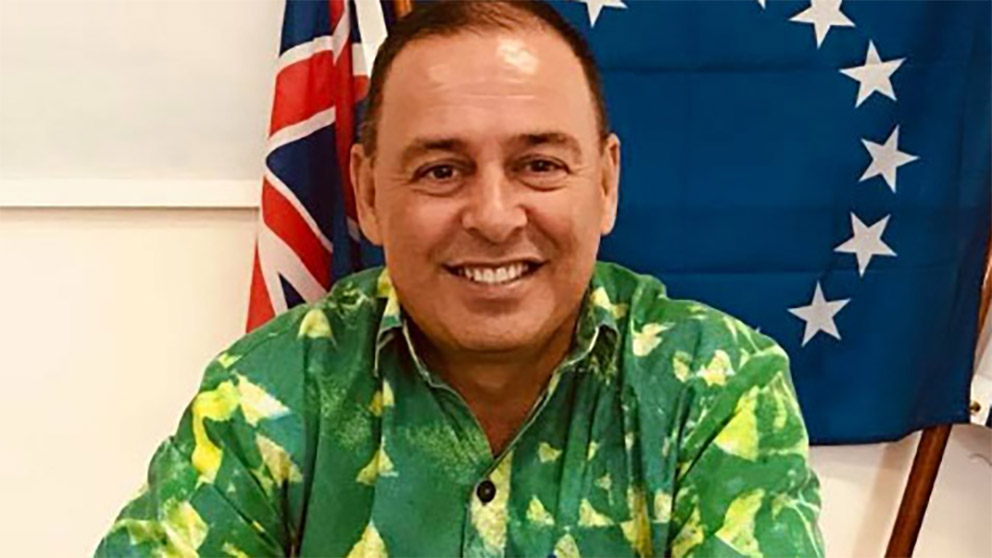Guarding our people against tropical weather extremes
Tuesday 8 February 2022 | Written by Supplied | Published in On the Street, Opinion

I am pleased to be submitting a proposal to Cabinet this week which recommmends that funding be made available to those members of our agricultural and fisheries sectors that have incurred loss or damage due to the recent weather events, writes Prime Minister Mark Brown.
Kia Orana,
As I mentioned in my previous column, last month’s weather events here in the Cook Islands, as well as the eruption of the Hunga Tonga-Hunga Ha’apai volcano and its impacts on our neighbours in Tonga, have served as a pointed reminder that we cannot be complacent when it comes to our disaster response and resilience measures.
I have already spoken about some of the many infrastructure upgrades Government has carried out over the past few years to help guard our people against the tropical weather extremes that we are always going to experience from time to time.
Most recently, for example, I have just returned from Tongareva, where I was proud to open two brand-new cyclone shelters for the communities of Omoka and Tetautua.
The difference between the Tongareva cyclone shelters and others is that these were fully funded by ourselves, the Cook Islands.
The two cyclone shelters on Manihiki (Tauhunu and Tukao villages) were built using New Zealand money. The Pukapuka shelter was built with European Union money. The Palmerston shelter used Japanese funding. Our plan still is to complete the shelters for our most vulnerable islands of Nassau and Rakahanga using our own money.
These additions and improvements to our infrastructure are ongoing, as we work to ensure that all of our enua are as disaster-proofed and resistant to the growing effects of climate change and extreme weather as they can be.
In addition to resilient infrastructure however, it is also vital that when disaster does strike, we are prepared to deal with it.
This means having both a well-coordinated emergency response system, and also post-disaster protocols in place that help us deal with the aftermath.
As we can see from what is currently unfolding in Tonga, these extreme events can often be more complex than we realise, with numerous different impacts overlapping and creating unexpected difficulties during the response process.
Should we ever find ourselves facing a challenge such as this, the key to meeting it effectively will lie in how well our various different government agencies cooperate with each other and with our communities.
And while there is still work to be done in this regard, one of the silver linings of the pandemic has been the increased interaction between our different agencies, born out of necessity as they have come together to combat Covid.
As long and drawn out as our pandemic response has had to be, many of the processes we have put in place because of it will also serve us well in times of more dire and pressing need.
But once the immediate threat of any disaster is past, we also need to think about how we go about picking up the pieces, an important part of which is supporting those households and businesses that may have suffered losses.
To that end I am pleased to be submitting a proposal to Cabinet this week which recommmends that funding be made available to those members of our agricultural and fisheries sectors that have incurred loss or damage due to the recent weather events.
Government has already put in place a range of instruments to reduce the nation’s financial exposure to disaster risk – including the establishment of a Disaster Emergency Trust Fund in 2011; taking out public insurance coverage under the Pacific Catastrophe Risk Assessment and Financing Initiative for Cyclones; and arranging a Disaster Recovery Mechanism loan from the ADB (Asian Development Bank).
These are all steps we have taken over the years to build the means to respond and recover from serious natural disaster. Having the finance ready and available is a crucial step in a quick rebuild.
Finally, before I wrap this up, I would like to offer my sincere thanks and appreciation to those parents and guardians of our 5-11 year olds who got their young ones vaccinated over Thursday to Saturday last week.
Vaccinating your tamariki at this age will both reduce the chances of them catching and transmitting Covid-19 and also protect them from severe effects if they do catch it, so meitaki ma’ata for trusting in proven science and in the expertise and advice of our health professionals at Te Marae Ora.
A total of 1148 children received their first dose of the paediatric Covid vaccine over the three days, representing about 80 per cent of those in that age bracket on Rarotonga.
This is a great start, and I hope to see that percentage either matched or exceeded in each of our Pa Enua as the vaccine rollout continues.
Kia Manuia.














































